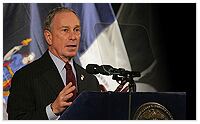While the soft drinks industry strongly rejects this hypothesis, two new papers published in the New England Journal of Medicine argue that sugar-sweetened beverages appear to play a key role in weight gain.
The authors of ‘Sugar Sweetened Beverages and Genetic Risk of Obesity’ analyzed the interaction between genetic predisposition and the intake of sugar-sweetened beverages in relation to BMI and obesity risk in 6,934 women from the Nurses' Health Study, 4,423 men from the Health Professionals Follow-up Study and also in a replication cohort of 21,740 women from the Women's Genome Health Study.
The “data provide consistent evidence… that greater consumption of sugar-sweetened beverages is associated with a more pronounced genetic predisposition to elevated BMI and obesity risk”, conclude the authors. Click here.
Empty calories?
Separately, researchers behind ‘A Trial of Sugar-free or Sugar-Sweetened Beverages and Body Weight in Children’ examined the effect of masked replacement of sugary beverages with diet versions in an 18-month, double blinded intervention study on healthy Dutch children. Click here.
They concluded that masked replacement of a sugary beverage with a sugar-free counterpart significantly reduced weight and body fat gain and postulated that this was because “the removal of liquid sugar was not sensed by satiating mechanisms and was incompletely compensated for by the increased consumption of other foods”.
However, the authors also noted that in observational studies (where subjects know if they are drinking sugary or diet drinks) “the consumption of artificially sweetened beverages is associated with weight gain rather than weight loss, which may be because consumers believe the use of such sweeteners permits them to eat more of other foods”.
Therefore, simply switching to artificially sweetened beverages “is insufficient to combat weight gain”, they acknowledged.
CSPI: Action is needed now to reduce consumption of sugary drinks
The research provided further evidence that action is needed now to reduce consumption of sugary drinks, said CSPI Executive Director Michael F. Jacobson.
“We can start with major education campaigns, requiring warning notices on labels, imposing substantial taxes on sodas, and eliminating soda from public buildings and parks.”
Farley: The placement of calorie-dense, ready-to-eat cheap foods and beverages at arm’s reach inevitably leads to the consumption of more calories

Writing in a commentary in the Journal of the American Medical Association, NYC Health Commissioner Tom Farley said politicians could stand by and watch people putting their health at risk or try and do something about it.
“The placement of calorie-dense, ready-to-consume inexpensive foods and beverages at arm’s reach inevitably leads to the consumption of additional calories.”
And while reducing portion sizes “will not reverse the obesity epidemic, it can have a substantial effect”, he added.
“The balanced and most effective approach is for governments to regulate food products that harm the most people, simultaneously encourage food companies to voluntarily produce and market healthful products, and then provide information to consumers in ways that facilitate their choosing healthful products.”
Marion Nestle: A 16-ounce soda is not exactly abstemious
His comments were echoed by Dr Marion Nestle, Professor in the Department of Nutrition, Food Studies, and Public Health at New York University, who participated in a debate organized by The Wall Street Journal asking who is responsible for tackling obesity.
Asked whether Bloomberg is on the right track, she said: “Why not create a food environment that makes it easier for people to eat less? A 16-ounce soda is not exactly abstemious.”
And simply hoping that education alone will help people make healthier choices is optimistic at best, she said.
”Attempts to get smokers to quit by invoking personal responsibility made little headway. Smokers quit when the government made smoking so inconvenient and expensive that it became easier to stop than to continue.”
James Rippe: As a percentage of the calories we’re consuming, added sugars have decreased
However, while it might be “emotionally attractive” to blame sugary drinks for our expanding waistlines, “the science is just not there”, claimed Dr James Rippe, associate professor of medicine at Tufts University School of Medicine.
Rippe told FoodNavigator-USA he was alarmed by the direction the soda debate is now taking.
He added: “People in the US are consuming on average 500 more calories than they did 30 years ago from all sources. But as a percentage of the calories we’re consuming, added sugars have decreased.
“We’ve also had diet drinks for the past 25 years and that hasn’t worked [arrested obesity rates].”
“The debate [on soda and obesity] has already begun to resemble the now disproven HFCS/obesity hypothesis [that HFCS is metabolized differently from sucrose and contributes more to obesity]. I think that we’re on a real slippery slope…”
While there is no compelling evidence that curbing the sale of super-size sodas will help tackle the obesity crisis, he argued, Bloomberg’s policy instead appeared to be based on the ‘it doesn’t hurt to try’ principle.
He added: “People say ‘it can’t hurt’. It can.”
Aside from deluding people into “thinking there is some magic bullet”, the banalso sent out a signal that it is OK to make public health decisions that are not supported by scientific evidence, he claimed.
American Beverage Association: Sugar-sweetened beverages are not driving obesity
The American Beverage Association added: “Studies and opinion pieces that focus solely on sugar-sweetened beverages, or any other single source of calories, do nothing meaningful to help address this serious issue.
The fact remains: Sugar-sweetened beverages are not driving obesity. By every measure, sugar-sweetened beverages play a small and declining role in the American diet."
Click here to read more about Rippe’s position on HFCS.
